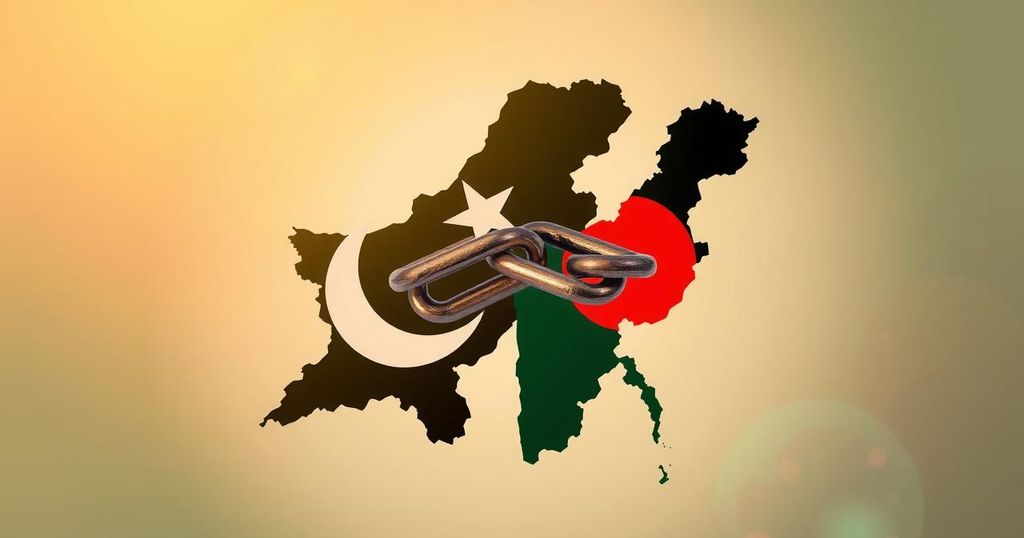Following Sheikh Hasina’s removal from power, Pakistan and Bangladesh are enhancing their relations characterized by mutual anti-India sentiment. Key military meetings signal a potential shift in geopolitical strategies, as both nations address historical grievances while exploring economic partnerships. Despite these developments, observers caution that deep-seated tensions and regional dynamics will play a crucial role in shaping the future of their relationship.
Following the removal of Sheikh Hasina from power, Pakistan and Bangladesh have started to develop closer ties characterized by a mutual anti-India sentiment. The recent interactions include a notable meeting between Pakistani Army Chief General Asim Munir and Bangladeshi Lieutenant General SM Kamrul Hassan, who noted the importance of bolstering military relations without foreign interference. The meeting reflects a series of diplomatic engagements aimed at exploring cooperative avenues amidst shifting geopolitical landscapes in South Asia.
Historically, the relationship between Pakistan and Bangladesh has been strained since Bangladesh’s independence in 1971, primarily due to the brutal civil war and subsequent events. The prolonged leadership of Hasina exacerbated tensions, leading to political backing from India that has now faced a recalibration under the current Bangladeshi interim government led by Muhammad Yunus. As the dynamics change, both countries seem interested in addressing long-standing grievances and reevaluating their historical enmity.
Former Pakistani diplomats suggest that the evolving ties might be a strategic maneuver for military support against concerns related to India. Furthermore, with India’s growing engagement with the Taliban and the accompanying political complexities, Pakistan and Bangladesh’s partnership could signal a new phase of collaboration. Both nations aim to resolve enduring disputes related to past atrocities and share mutual economic interests, particularly in terms of trade relations.
Trade relations indicate a significant disparity, with Pakistan exporting far more to Bangladesh than it imports, reflecting potential for growth. As Bangladesh showcases a robust economy with an impressive growth rate, Pakistan may seek to leverage this as an opportunity for enhanced bilateral cooperation. The restoration of direct connectivity, including flights and trade facilitation, could further foster better relations in the future.
The historical context of Pakistan and Bangladesh’s relationship is marked by significant conflict, primarily stemming from the 1971 liberation war which resulted in Bangladesh’s independence after severe violence and atrocities. For decades, both nations grappled with unresolved issues, including formal apologies for past actions, and the repatriation of certain communities. Sheikh Hasina’s nearly 16-year tenure in Bangladesh led to closer ties with India, deepening the divide between Dhaka and Islamabad. With Hasina’s outster amid mass protests, there is a perceived shift toward a more Pakistan-friendly administration in Bangladesh, potentially altering regional geopolitics in South Asia. Analysts are closely observing the renewed military engagements and what it could mean for the responses within the larger India-Pakistan relationship, especially considering India’s complex position with regards to Bangladesh governance.
As Pakistan and Bangladesh engage in a tentative diplomatic thaw, the historical animosity appears to be overshadowed by immediate geopolitical concerns, particularly regarding India. The recent military and political discussions suggest a strategic recalibration by both nations, focusing on economic partnerships and military cooperation. However, observers warn that despite this newfound camaraderie, long-standing issues and geographical realities will continue to shape their interactions and influence regional stability in South Asia.
Original Source: www.aljazeera.com






